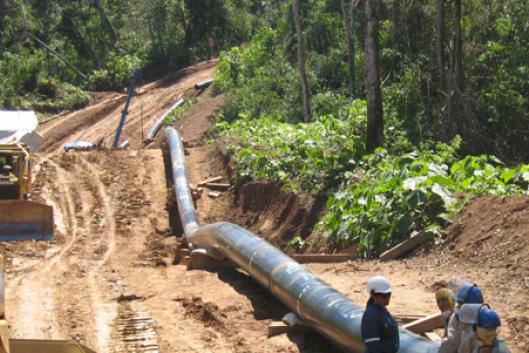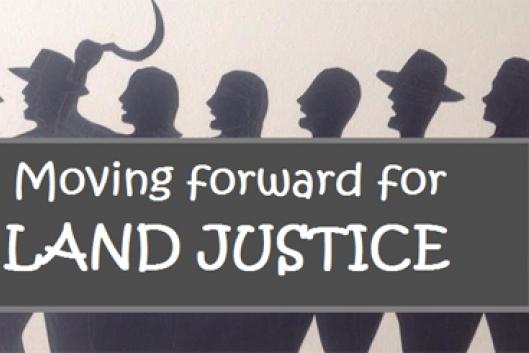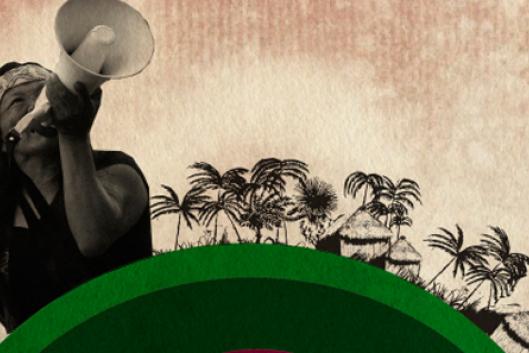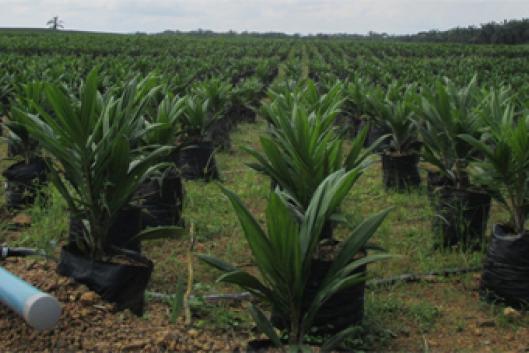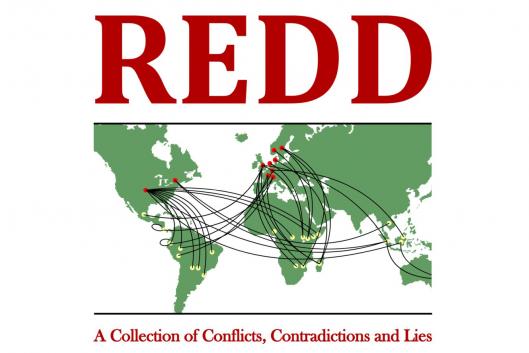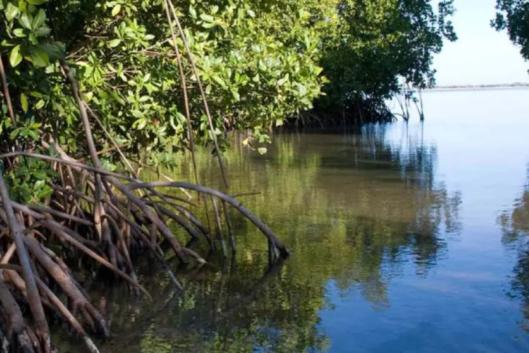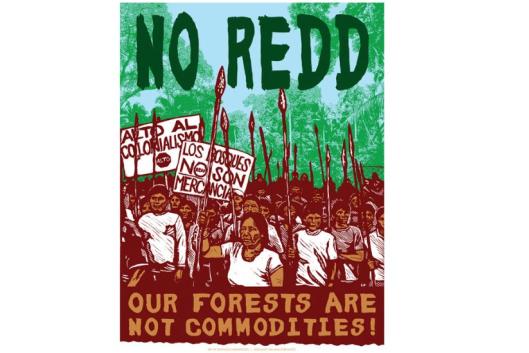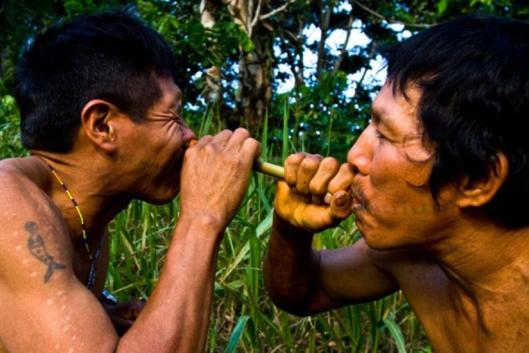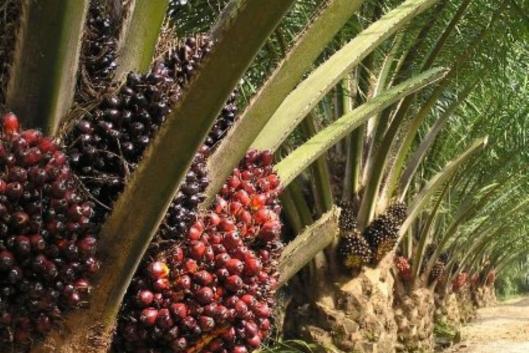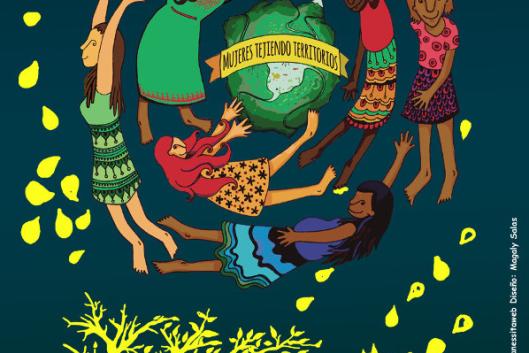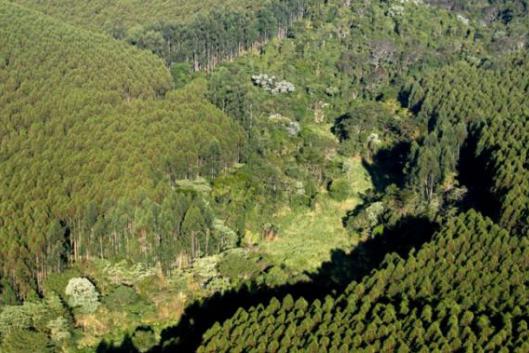For almost ten years, a group of banks, corporations, governments and NGOs have been attempting to show the world that REDD+ is a good mechanism for combating climate change.
However, as WRM has sought to learn more about the REDD+ policies that have been designed over the years, and especially, the pilot projects that have been implemented, what we have seen is a consistently failed mechanism that suffers from many structural contradictions (you can find more information about REDD+ on the WRM website).
Bulletin Issue 208 – November 2014
Climate COP in Peru: more business opportunities for global polluters
WRM Bulletin
208
November 2014
OUR VIEWPOINT
CLIMATE COP IN PERU: MORE BUSINESS OPPORTUNITIES FOR GLOBAL POLLUTERS
-
9 December 2014For almost 20 years, the United Nations climate negotiations have promoted the carbon market as the flagship ‘solution’ for climate change. However, this market allows corporations and governments to offset their pollution, without having to reduce the emissions at source. As a result, not only have global levels of the greenhouse gases that cause climate change increased, but also, large-scale projects implemented primarily in countries in the South to ‘offset’ the emissions of countries and corporations in the North have given rise to environmental devastation, the plunder of land and territories, social conflicts, and even violations of human rights.
-
9 December 2014On 31 July 2014, the ‘Forestry Master Plan’ (FMP) was issued by Thailand’s Internal Security Operations Command and the Ministry of Natural Resources and Environment. There was no consultation with the public or civil society before the drafting of this plan, nor was there any kind of referendum or public consultation after the plan was finalized.
-
9 December 2014It is obvious that capitalism feeds on and is sustained by the exploitation of workers, women, indigenous peoples and nature. And, while it was believed that women’s bodies were the last frontier of capitalism, we now see that the borders have expanded towards other areas: the functions, cycles, elements and structures of the natural world. Photosynthesis, the carbon cycle, the production of water, the creation of biodiversity and other process that recreate life on the planet are now commodities that can be abstracted, appropriated, marketed and even turned into financial investment products.
-
9 December 2014The Democratic Republic of Congo (DRC) has the largest continuous rainforest area in Africa, which is one of the largest in the world. However, its high biological diversity, including humid, dry, wetlands, bamboo, mangrove and many other forests, which coexist for centuries with indigenous and forest dependent people, is under serious threat with the expansion of oil palm plantations and foreign investors in general. Moreover, climate policies related to forests in the DRC, such as REDD, pose further threats to forests and local communities by encouraging industrial oil palm cultivation. Industrial oil palm expansion in DRC
WRM TOOLS FOR THE PEOPLES SUMMIT IN PERU:
-
9 December 2014This publication summarizes the problems identified in 14 REDD projects based on published field reports. All of the cases reveal a series of structural characteristics that undermine the rights of forests peoples and fail to address the crises of deforestation and climate change.
-
9 December 2014This briefing addresses the promotion of ‘Blue Carbon’ initiatives, also known as ‘Blue REDD’, a new trend focused on trading the ‘stored’ carbon on marine and coastal territories, especially mangrove forests.
-
9 December 2014This publication addresses a new version of REDD, known as ‘Landscape REDD’, which is just as much of a false solution to climate change as the original version. Landscape REDD is aimed at encompassing besides forests, agricultural fields and practices. This trend remains a top-down approach, and focuses on protecting and promoting agribusiness, to the detriment of indigenous peoples and peasant farmer communities. Previously published as an article in the WRM Bulletin No. 204, the article aims to understand how Landscape REDD is the same idea as REDD, just bigger – and with the potential to do more harm.
PEOPLES IN ACTION
-
9 December 2014The NGO Survival International uncovered serious abuses of Baka “Pygmies” in southeast Cameroon, at the hands of anti-poaching squads supported and funded by the World Wide Fund for Nature (WWF). The Baka are being illegally forced from their ancestral homelands in the name of “conservation” because much of their land has been turned into “protected areas” – including safari-hunting zones. Rather than target the powerful individuals behind organized poaching, wildlife officers and soldiers pursue Baka who hunt only to feed their families. See full article: www.survivalinternational.org/news/10456%20/
-
9 December 2014The Matsés indigenous people are fighting back to stop Pacific Rubiales Energy, a Canadian oil and gas company, from destroying their territory and endangering their lives and forests. One of the company’s exploration blocks, on the Brazilian border, is in an area proposed for designation as a national reserve, theoretically to protect the Matsés. Another block overlaps with land officially demarcated as the territory of this indigenous people. But the Matsés are standing up against the company. “Our ancestors always told us that it is outsiders who begin conflicts. Just like during the rubber boom, they are going to come again and cause conflicts between us.
-
9 December 2014While Malaysia and Indonesia produce over 85% of the world’s palm oil, India is its largest importer. To boost palm cultivation, the Ministry of Agriculture introduced a Special Program on “Oil Palm Area Expansion” in 2011-12 aimed at increasing oil palm production in the 12 states from 50,000 to 300,000 metric tons in the next five. This plantations expansion falls within the government’s New Land Use Policy (NLUP) to wean farmers away from their traditional practice of subsistence farming. But conversion to oil palm plantations is not only leading to the destruction of forests and biodiversity but also is undermining food sovereignty, traditional knowledge and agricultural practices from local farmers.
-
9 December 2014The date was chosen by the Pesticide Action Network to commemorate the 30,000 people killed as a result of the Bhopal disaster in India in 1984, when 27 tons of deadly gas used in the manufacture of pesticides were released by a leak at a Union Carbide plant. In addition to the thousands of deaths, thousands of others were left with nervous system damage and other physical injuries. The use of toxic pesticides is closely linked with monoculture plantations and agroindustry, two of the main causes of deforestation and devastation for communities who depend on forests.
-
9 December 2014A problem peasant women face is invisibility in the feminist and women’s movements. A second problem is the weakness with which the food sovereignty concept has dealt with the challenges of feminism. Food sovereignty is based on the conviction that each people has the right to make decisions about its own food systems: about its own eating habits; about its production, marketing, distribution, exchange, and sharing; and about keeping food and seeds in the public sphere. If we establish that food sovereignty is how people decide what to produce and under what conditions, our question from a feminist point of view is, then: how do people make decisions? Who decides how power is organized?
RECOMMENDED
-
9 December 2014A new report by the Oakland Institute introduces the term ‘carbon violence’ to describe the impact of Green Resources’ plantation operations in Uganda on local communities and their environment. Green Resources is a Norwegian-registered plantation company with 41,000 hectares of plantations in Mozambique, Tanzania and Uganda. The company’s plantations, certified under FSC, are used for timber products and generate carbon credits.
-
9 December 2014A Friends of the Earth report looks at specific case studies which demonstrate that REDD projects can facilitate rather than prevent the continued use of fossil fuels; exacerbate tensions over land and resource rights; have significant negative impacts on forest-dependent Indigenous Peoples and local communities; threaten food security; and even endanger forests. Some REDD projects have also faced significant financial difficulties, wasting considerable amounts of public funding. See full report at: http://www.foei.org/wp-content/uploads/2014/09/The-great-REDD-gamble.pdf
-
9 December 2014An article by Brazilian organizations FASE Amazonía, Grupo Carta de Belém and Fórum de la Amazonía Oriental, published by the newspaper “Aldeia”, challenges the myth – rooted in the carbon market – that the energy produced by hydroelectric plants is ‘clean’ energy, that is, an energy source that does not create polluting emissions. This claim ignores the many impacts caused by mega-dams in terms of deforestation, the displacement of populations, the building of roads in formerly inaccessible areas, the permanently flooded areas that produce greenhouse gas emissions, etc. Moreover, hydroelectric projects can be used to generate carbon credits through carbon market-based ‘offset’ mechanisms.
-
9 December 2014Through a series of articles, this report, from the organization Focus on the Global South, denounces how land, forests and water are being captured and enclosed for a range of purposes: industrial agriculture, tree plantations, hydropower, extractive industry, tourism, physical infrastructure, real estate development, Special Economic Zones and, quite simply, for financial profit through the construction of new markets. Local populations, for the most part, lose their livelihoods, homes, cultures, identities and access to natural food cupboards; they are forcibly evicted or relocated, and often pushed into precarious, low-paying wage labor.
-
9 December 2014The video from “If Not Us Then Who?” follows the aftermath of the murders of four indigenous leaders and activists, including Edwin Chota, in Peru. Through their widows and friends we learn about their ongoing fight for land titling. This story is one of many examples of Indigenous Peoples defending the forest and paying the ultimate sacrifice. The video was released in conjunction with a new report from the NGO Global Witness, “Peru's Deadly Environment”. See video at: http://ifnotusthenwho.me/#

